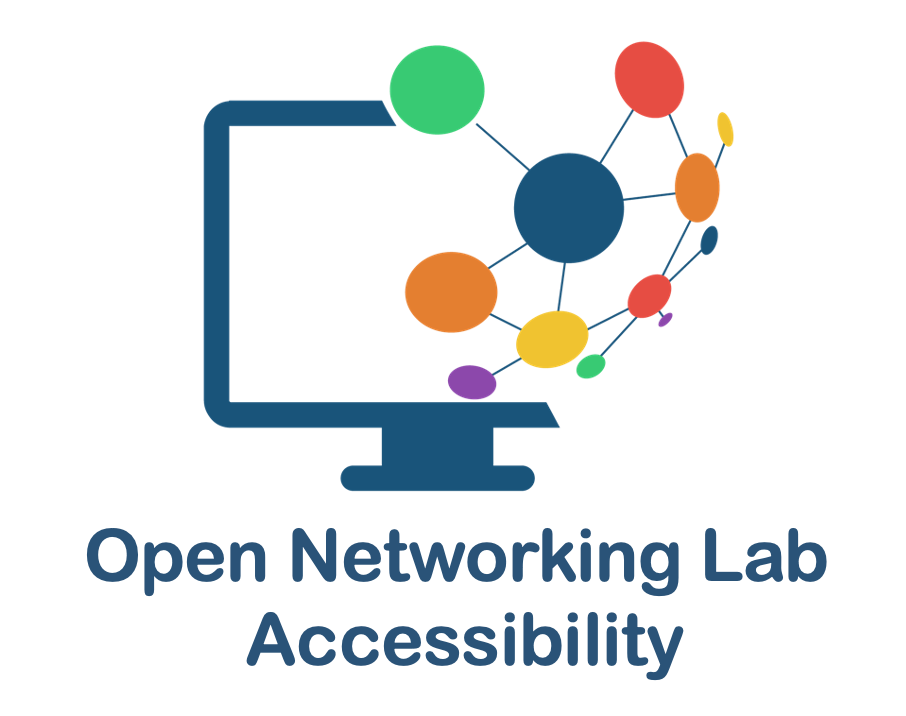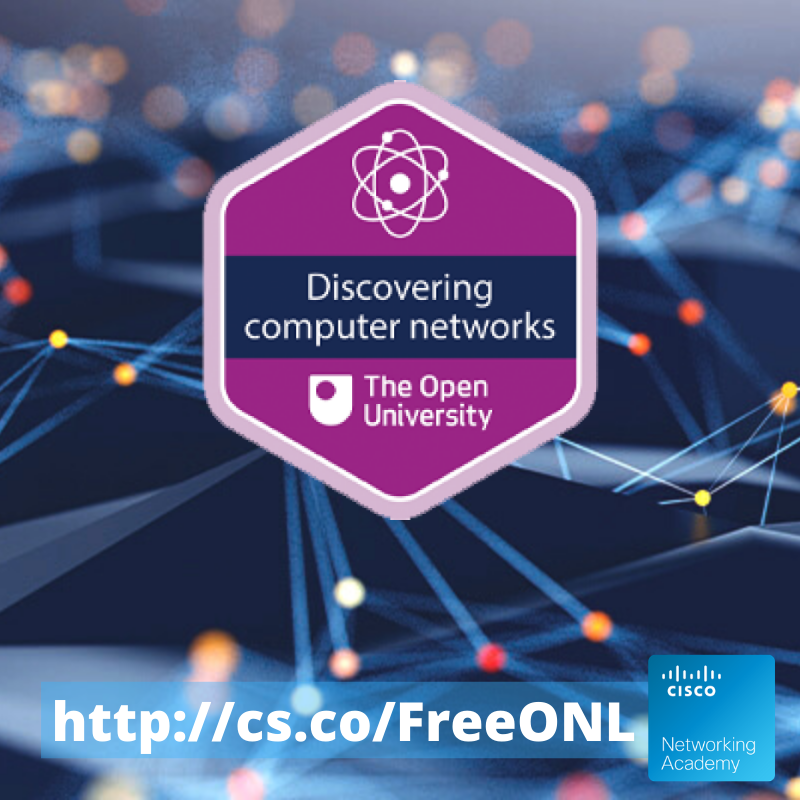The Open Networking Lab (https://onl.kmi.open.ac.uk/) is committed to ensuring accessibility for all individuals, including those with disabilities. We strive to provide a seamless and inclusive experience for all users, regardless of their abilities or assistive technologies used.
The Open University’s web presence consists of several million individual pages across numerous websites. We want as many people as possible to be able to use our websites, and accessibility is an essential part of our mission. To adapt the content to your needs or preferences you should be able to:
- Change colours, contrasts levels and fonts.
- Resize text up to 200% without impact on the functionality of the website.
- Zoom in up to 400% without loss of information or functionality.
- Navigate the website using just a keyboard.
- tab to ‘Skip to content’ links at the top of the page to jump over repetitive information to the main content.
- tab through the content; the current location will be indicated by a clear visual change.
- control the embedded media player to play audio and video materials.
- Use a screen reader (e.g. JAWs, NVDA) to :
- listen to the content of web pages and use any functionality on the page.
- list the headings and subheadings in the page and then jump to their location on the page.
- bring up a list of meaningful links on the page.
- Use transcripts or closed captions with most audio and video materials.
- Download learning materials in alternative formats (e.g. Word document, PDF, ePub, Kindle eBook).
- If you have a print disability we provide SensusAccess to students, which is an automated service that converts files from one format to another, for example, PDF to text, audio, Word or Braille.
- AbilityNet also provides advice on making your device easier to use if you have a disability.
How accessible this website is
We strive to exceed current accessibility standards. However, we know some elements of Open University websites are not fully accessible:
- Some third-party content not created by The Open University.
- Sites linked from Open University pages but not run by the Open University.
- Some activities (for example some of those involving maps, charts, graphs, online-experiments, interactive activities and features).
- Some content with specialised notations, such as mathematics, physics, chemistry and music.
- Older PDFS and Word documents may not be fully accessible to screen reader software.
- The colour contrast for some text and some interface components (for example search boxes, check boxes) is not sufficient.
- Some online forms are not set up correctly to include helpful direction for screen reader users.
We aim to provide accessible alternative content or activities where we can. For more information please visit What Support is Available and for more guidance please visit Studying on a Screen.
Feedback and contact information
If you find that a certain section of our website is not accessible and you can’t get access to the information that you need please use the Open University Accessibility Feedback Form to request support and we will ensure that you are provided with the information you require. You will need to provide your contact details and Personal Identifier if you are a student so we can get back to you. You should expect to hear back from us within 5 working days.
The OU is very experienced in meeting accessibility needs for our students. In many cases we are able to provide module and other study support materials in alternative formats for students who indicate a need for this when completing a Disability Support Form
In addition, some module materials are available in different formats and can be downloaded from module websites. Students can contact their Student Support Team for advice.
Reporting accessibility problems with this website
We’re always looking to improve the accessibility of our websites. If you find a problem that isn’t already listed on this page, or you think we’re not meeting the requirements of the current accessibility regulations (Public Sector Bodies (Websites and Mobile Applications) (No. 2) Accessibility Regulations 2018), please use the Open University Accessibility Feedback Form which is monitored daily.
We will ask you for the web address (URL) of the page and a description of the problem. We will also ask for your name and email address so that we can contact you about your feedback. You should expect to hear back from us within 5 working days.
Enforcement procedure
If you are a student, or someone who has had contact with the University before, and have a complaint about the accessibility of our websites, you should raise a complaint via the complaints and appeals process.
The Equality and Human Rights Commission (EHRC) is responsible for enforcing the Public Sector Bodies (Websites and Mobile Applications) (No.2) Accessibility Regulations 2018 (the ‘accessibility regulations’). If you are not happy with our response and all our procedures have been exhausted, please contact the Equality Advisory and Support Service (EASS). If you are based in Northern Ireland you can contact the Equalities Commission for Northern Ireland Equalities Commission for Northern Ireland (ECNI).
If you are neither a student, nor someone who has had contact with the University before and have a complaint about the accessibility of our website, you should go directly to the EASS.
Contacting Us
If you wish to contact us about anything not covered above, please visit our Contact Page where we have a comprehensive list of services to suit your specific enquiry and requirements.
Technical information about this website’s accessibility
The Open University is committed to making its website accessible, in accordance with the Public Sector Bodies (Websites and Mobile Applications) (No. 2) Accessibility Regulations 2018.
Compliance status
This website is partially compliant with the Web Content Accessibility Guidelines version 2.1 AA standard, due to the non-compliances listed below.
Non accessible content
Non-compliance with the accessibility regulations
Current web technology is not capable of ensuring the accessibility of specialised notations (e.g., mathematics, chemistry, physics, music, phonetics etc.). We are monitoring developments in these areas and will improve our services as the technology matures.
Some online activities cannot be made fully accessible (e.g., categorising an image). Wherever practical, an alternative activity will be provided.
The level of accessibility during live events is limited. We are working closely with third-party suppliers and improving our internal systems to improve accessibility during live events.
The Open University provides links to external websites that may not meet accessibility standards.
Current Accessibility issues:
Level A
- Clickable controls should be keyboard accessible.
- Clickable controls should have an ARIA role.
- Headings should not be empty.
imgelements must have an accessible name.- Links must have an accessible name.
Level AA
- Cannot use
aria-labeloraria-labelledbyon elements and roles that prohibit naming. - Do not use the
meta viewporttag to disable zoom. (fixed) - The CSS outline or border style on this element makes it difficult or impossible to see the dotted link focus outline.
Level AAA
- Avoid specifying a new window as the target of a link with
target=_blank. - Link uses general text like ‘Click Here’ which doesn’t explain link purpose.
Preparation of this accessibility statement
This statement was prepared on 13th January 2025. It was last reviewed on 13th January 2025.
This website was last tested on 13th January 2025. The test was carried out by Digital Development Services (STEM-TS).
You can read the full accessibility test report: Open Networking Lab accessibility report – 13th January 2025.







